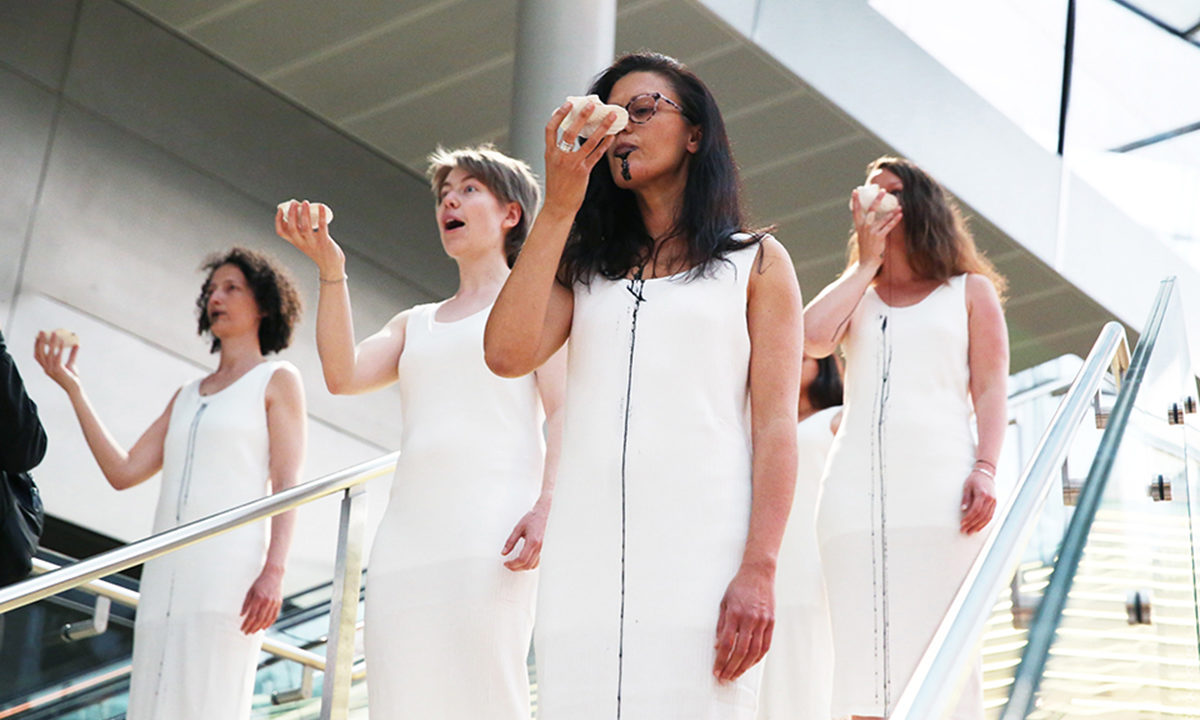Oil and gas companies get many benefits out of sponsoring a museum, from boosting their brand image to sipping wine alongside politicians at exhibition openings. But sometimes, oil sponsors want to get more for their money and try to interfere in a museum’s decision-making.
In 2015, it was revealed that Shell had tried to do exactly that. At that time, Shell was one of the main sponsors of the Atmosphere gallery on climate science at the Science Museum in London. A cache of emails that had been released under the Freedom of Information Act showed Shell trying to nudge museum staff and curators to do its bidding and make sure the company wouldn’t face uncomfortable criticism, and the scandal became a front-page story in The Guardian.
One email from a Shell employee said that:
‘there is now a CCS [Carbon Capture and Storage] video that is currently being produced based on Shell’s CCS video’.
Carbon capture and storage is a largely unproven technology but one that many fossil fuel companies have touted as a way to justify drilling for more fossil fuels. In this case, it seemed that visitors to the Science Museum would be getting Shell’s version of the facts.
The museum also got in touch with Shell to get its thoughts on how to display a report by the renowned scientist James Lovelock, which had originally been commissioned by the oil company. After considering the museum’s proposed label to sit alongside the report, an employee at Shell advised the museum:
‘I’d prefer the wording not to focus on pollution and environmental damage’.
Museums are excellent spaces for debate and discussion. But it was exactly that debate and discussion that Shell was afraid of when the museum put on a related display called the ‘rubbish archive project’, exploring issues related to waste. In May 2014, a Shell employee emailed the museum writing:
‘I have some concerns on this exhibition particularly as it creates an opportunity for NGOs to talk about some of the issues that concern them around Shell’s operations…’
As part of this project, the Science Museum also planned to hold a public symposium event for discussing related issues. But this too had got Shell worried:
‘Could you please share more information with us on the [accompanying] symposium event planned for September? As you know we receive a great deal of interest around our art sponsorships so need to ensure we do not proactively open up a debate on the topic. Will it be an invite only event?’
These emails have become one of the most well-known examples of corporate sponsors trying to overstep the mark. But despite this, the Science Museum has gone on to make new partnerships with BP, Statoil, and Shell. And rather than take steps to make sure these companies don’t overstep the mark again, the museum still seems happy to help protect their reputations. In its sponsorship contract with Statoil, the museum has agreed to:
‘…Take care [not to] make any statement or issue any publicity or otherwise be involved in any conduct or matter that may reasonably be foreseen as discrediting or damaging the goodwill or reputation of the Sponsor’
It raises the question, would it be seen as damaging to Statoil’s reputation to simply talk about the scientific consensus on climate change which is telling us that we need to leave fossil fuels in the ground and not – like Statoil – drill for more?
